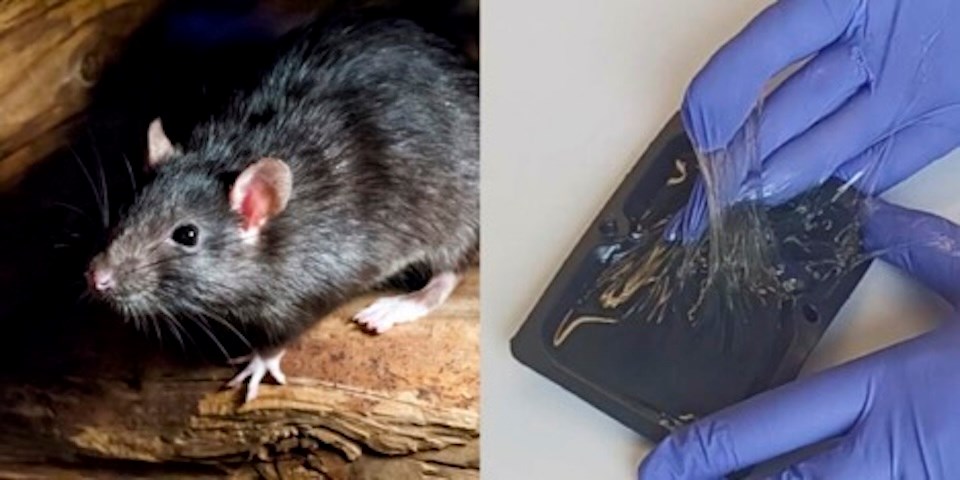With municipal representatives gathering in Â鶹´«Ã½Ó³»next week, the BC SPCA is calling on local governments to endorse a resolution asking for a provincewide ban on the sale, purchase and use of glue traps.
A resolution on the issue, sponsored by View Royal and Saanich, is due before the Union of BC Municipalities (UBCM) convention. The convention runs Sept. 16-20.
“For years, the BC SPCA has advocated against wildlife control methods that cause prolonged suffering and endanger non-target species,” said spokesperson Sarah Herring. “Glue traps cause severe pain and suffering to rodents and other animals who get caught in the traps like small birds, bats, reptiles and even pets.”
The BC SPCA said the Canadian Veterinary Medical Association and American Veterinary Medical Association have said such traps are not an acceptable means of killing vertebrate animals because they are inhumane.
The society said the traps have already been banned in Norway, the Netherlands, Germany, England, Iceland, Ireland, New Zealand, Wales and parts of Australia and India.
The District of North Â鶹´«Ã½Ó³»and Town of View Royal have banned their use on municipal property.
The resolution was championed by Coun. Teale Phelps Bondaroff from the District of Saanich, and Coun. John Rogers from the Town of View Royal after hearing a presentation from Lavinia Rojas, who has dedicated herself to raising awareness about glue traps.
“I am pleased to see this resolution heading on to UBCM and hope that delegates there will support it as enthusiastically as the delegates at AVICC (),” Bondaroff said. “Glue traps are inhumane and indiscriminate. The animals caught in glue traps suffer horrific and lingering deaths, and this is a fate experienced by target and non-target animals alike.”
The UBCM resolution book said the UBCM membership has not previously considered a resolution asking the provincial government to implement a provincewide ban on the sale, purchase and use of rodent glue traps.
The UBCM has, however, called on the province in the past to:
• allow local governments to enact bylaws regulating rodenticide use in the newly created urban interface areas;
• asked the B.C. government to implement a provincewide ban on the sale, purchase and use of anticoagulant rodenticides, and call for the Minister of Health to initiate a special review of the regulation of anticoagulant rodenticides; and,
• sought the development and funding of a strategy to reduce and/or control the rat population in B.C.
The BC SPCA said the traps:
• cause severe pain and suffering to rodents and other unintended animals like birds, bats, small mammals, reptiles, amphibians and even pets;
• are designed to catch animals, not kill them. People typically leave them unchecked for long periods of time, so trapped animals can live for more than 24 hours before dying from suffocation, dehydration, starvation, exhaustion or exposure; and,
• rodents feel pain and distress like any other animal and deserve to be treated humanely, even when lethal management is required.
Rather than use the traps, the BC SPCA suggested the most effective and humane way to control mice and rats is rodent-proofing to prevent a problem before it occurs.
It said using glue traps without addressing the root cause of a rodent infestation only results in an endless cycle of trapping, suffering and inhumane death.
And, it said, when lethal control is required (after preventative measures have been made, including sealing entry points), the most humane options are snap traps or captive bolt traps designed to cause a quick death.


